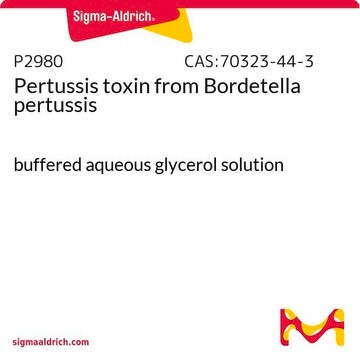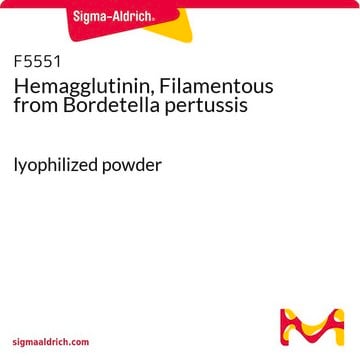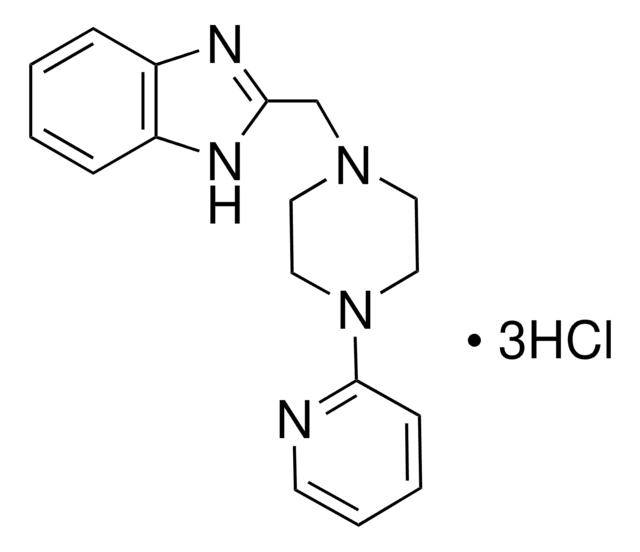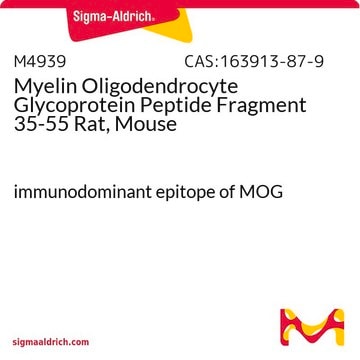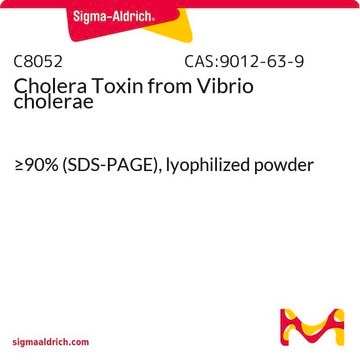SAE0066
Adenylyl Cyclase Toxin from Bordetella pertussis
About This Item
Produits recommandés
Source biologique
Bordetella pertussis Tohama I
Niveau de qualité
Pureté
≥70%
Forme
liquid
Activité spécifique
≥ 50 units/mg protein
Technique(s)
cell culture | mammalian: suitable
Adéquation
suitable for molecular biology
Application(s)
detection
Température de stockage
−20°C
Informations sur le gène
Bordetella pertussis Tohama I ... CyaA(69600712)
Description générale
Adenylate Cyclase Toxin (ACT or CyaA) is a member of the extensive family of toxins known as Repeat in Toxin (RTX), which are produced by Gram-negative organisms. ACT is encoded by the cyaA gene and secreted extracellularly in the form of a soluble protein. It exhibits both adenylate cyclase enzymatic activity and hemolytic activity. The synthesis, maturation, and secretion of ACT are regulated by the CyaCABD operon. Moreover, its specific cellular receptor, CD11b/CD18 integrin (αMβ2, Mac-1, or CR3), is expressed on myeloid phagocytes.
Application
Actions biochimiques/physiologiques
Code de la classe de stockage
10 - Combustible liquids
Classe de danger pour l'eau (WGK)
WGK 3
Point d'éclair (°F)
Not applicable
Point d'éclair (°C)
Not applicable
Certificats d'analyse (COA)
Recherchez un Certificats d'analyse (COA) en saisissant le numéro de lot du produit. Les numéros de lot figurent sur l'étiquette du produit après les mots "Lot" ou "Batch".
Déjà en possession de ce produit ?
Retrouvez la documentation relative aux produits que vous avez récemment achetés dans la Bibliothèque de documents.
Les clients ont également consulté
Notre équipe de scientifiques dispose d'une expérience dans tous les secteurs de la recherche, notamment en sciences de la vie, science des matériaux, synthèse chimique, chromatographie, analyse et dans de nombreux autres domaines..
Contacter notre Service technique
